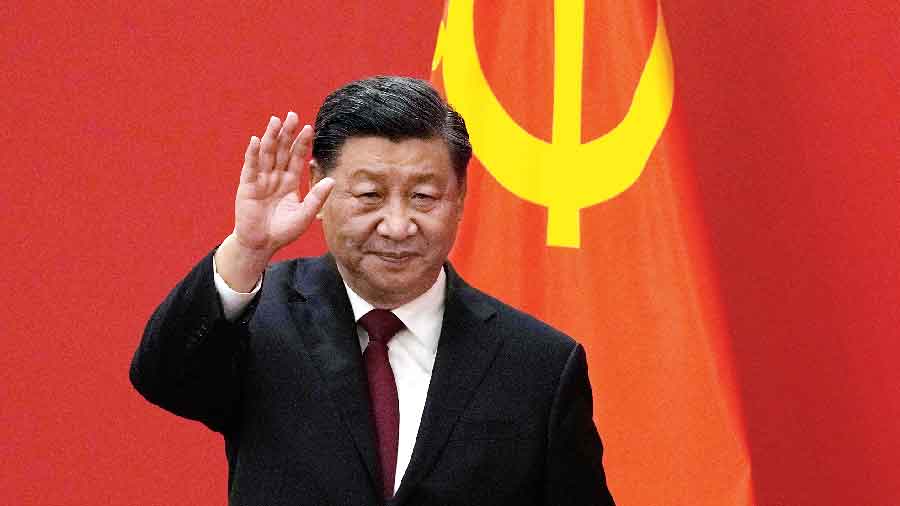Xi Jinping was unanimously elected Chinese President for the third time on Friday, giving him the country’s longest-serving leader since founding father Mao Zedong, according to a report.
Thousands of delegates at the National People’s Congress (NPC) in Beijing voted on Xi’s reappointment as president and head of the military for another five years, according to Nikkei Asia. Yet, in China’s rubber-stamp parliament, the process was a formality after Xi, 69, was approved as the ruling Communist Party’s chairman during a twice-decade conference in October.
All 2,952 NPC delegates cast a ballot approving a new mandate for Xi. Previously, the NPC had ditched term limits, clearing the way for Xi to potentially rule for life.
Delegates also voted to install Vice Premier Han Zheng as China’s vice president, a largely ceremonial position.
A sweeping set of reforms, including setting up a new financial sector watchdog and national data agency, was approved in a move that may herald tighter restrictions on key sectors of the world’s Number 2 economy, according to Nikkei Asia.
Mary Gallagher, a political science professor at the University of Michigan, as quoted by Nikkei Asia, said: “Xi Jinping is doing two things at the same time. He is centralizing power to the centre while also strengthening the CCP [Chinese Communist Party] at the expense of the state. Doing these two things at once is unprecedented in the reform era.”
Gallagher noted that the reforms could make it more difficult for local governments to rule themselves, as they battle with huge virus-control expenditures accumulated under Xi’s famous zero-COVID policy and declining revenue from a slowing property market.
“Effective local governance will be more difficult under these conditions though local governments will be more compliant with the center,” Gallagher told Nikkei Asia.
Xi’s appointment comes as a new premier and cabinet are expected to be named over the weekend before the NPC concludes on Monday.
According to Nikkei Asia, China is gradually becoming a suffocating police state similar to the previous Soviet Union, as President Xi Jinping desired direct control over the security force.
Sources have raised alarm about the likelihood of establishing a new police and state security entity that would report directly to Xi, the “core” of the party’s Central Committee.
These worries arose in the aftermath of a three-day session of the party’s leadership known as the second plenary session of the party’s 20th Central Committee, which concluded on Tuesday.
According to Nikkei Asia’s sources, Xi intends to strengthen organisations related to state security and public security in a fundamentally unconventional manner.























